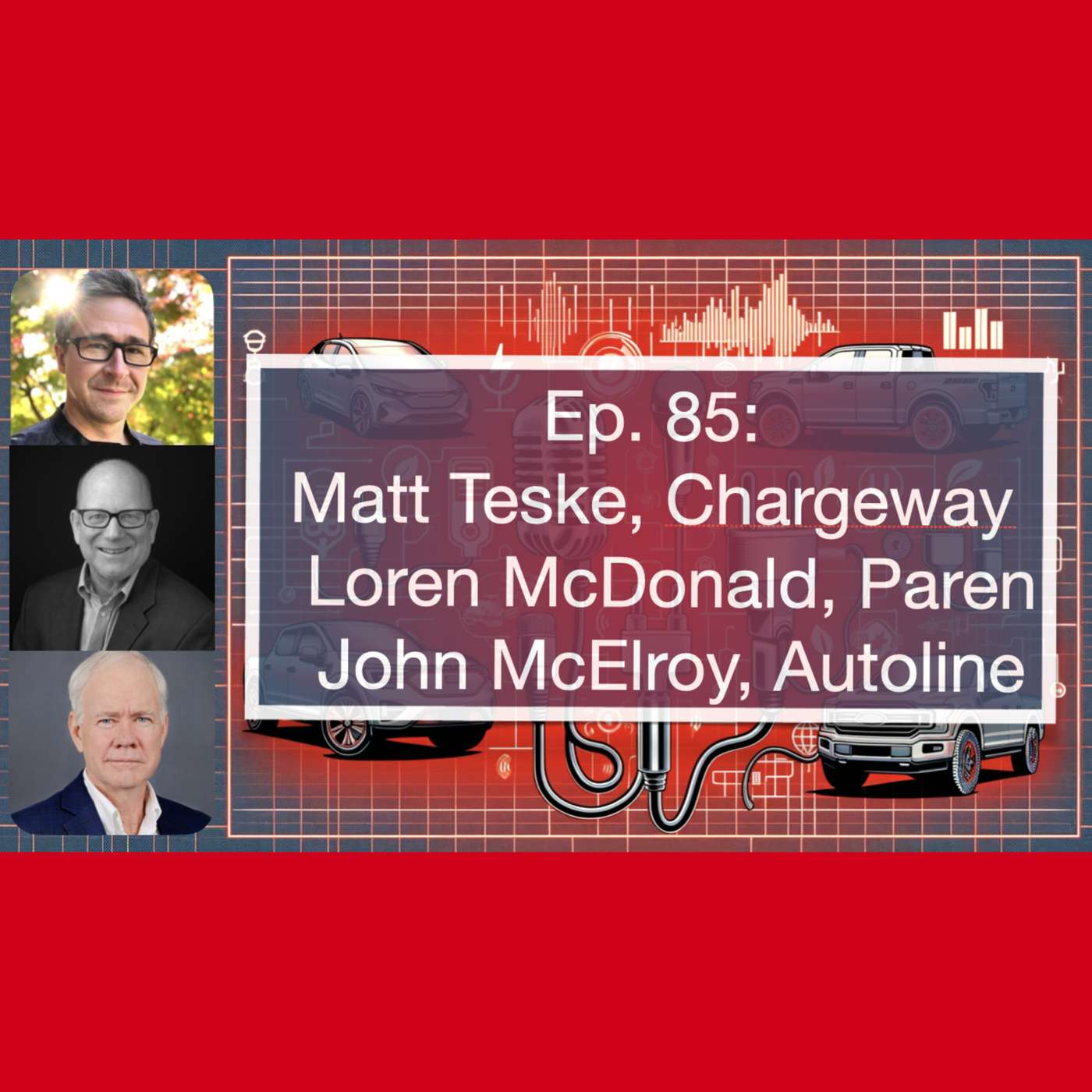View Transcript
Episode Description
Summary
Industry experts Matt Teske (Chargeway), Loren McDonald (Paren), and John McElroy (Autoline Network) join host Chase to tackle the most pressing myths and realities in EV charging. They break down the surprising growth in U.S. charging infrastructure, challenge the mainstream narrative that EV adoption is stalling, and highlight why better communication—not just better technology—is critical for the next wave of EV buyers. From fast-charging expansion and policy headwinds to automaker struggles and the impact of leasing and used EVs, this episode is packed with insight for anyone navigating the future of clean transportation.
⚡ Tune in now and don’t forget to Subscribe to our new newsletter!
Plus check out our new consultancy site: Grid Connections Consulting
Links from this Episode
Takeaways
- Fast Charging Is Scaling—But With Growing Pains
While fast-charging installations are breaking records, some regions are facing underutilization due to overbuilt infrastructure or slow EV adoption, revealing the importance of aligning deployment with real-world demand. - Charging Station Visibility Is a Major Barrier
The lack of consistent signage and recognizable branding for EV chargers is creating consumer confusion. The panel argues that marketing electricity as a fuel—complete with price signage—can dramatically shift public perception. - The Real EV Education Problem: Zero Public Messaging
Despite billions in public investment, there’s virtually no nationwide campaign explaining how EV charging actually works. The absence of clear messaging continues to slow adoption among mainstream drivers. - EV Sales Are Fragmenting Across More Models, Not Growing Per Model
With over 80 BEV models on the market and many more on the way, the data shows EV sales are plateauing per vehicle. Most sales gains come from newly introduced models, not sustained growth across existing ones. - Used EVs Are Creating Wildly Competitive Price Points
Consumers can now find luxury EVs like the Mercedes EQS for under $35K, putting pressure on automakers to justify new model pricing—even for upcoming sub-$30K EVs. - Automakers Are Losing Money—And Options Are Limited
As leasing incentives phase out and tariffs ramp up, legacy automakers face difficult decisions: cut margins further, eat the costs, or risk sales decline. Profitability is increasingly tied to platform efficiency and software. - Bidirectional Charging May Be the Game-Changer No One's Talking About
As grid reliability declines, EVs with power backup capabilities—like the Cybertruck—offer new value propositions for homeowners. Yet, the industry has barely scratched the surface in promoting this benefit to consumers.
Support or Connect with Grid Connections
- Looking to either buy a Tesla or even test drive one, use our referral code.
- Travel for work and looking for a card that rewards your travel needs? Earn 60,000 bonus points with either Chase Sapphire card.
- Looking to go off grid or just need a better internet setup? Try Starlink FREE for a month.
- Want to be a guest on Grid Connections?
Website | YouTube | Twitter | Instagram | Facebook
NEVI, EV charging, infrastructure, federal policy, rural charging, electric vehicles, multifamily, charging deserts, state responses, industry trends, DCFC, DC Fast Charging
